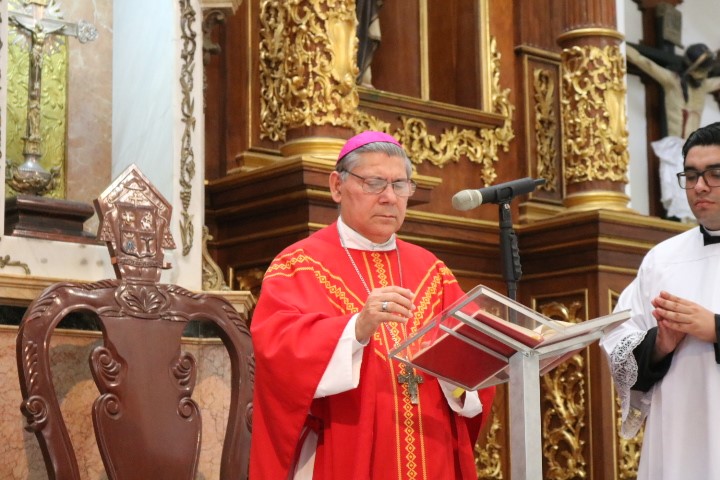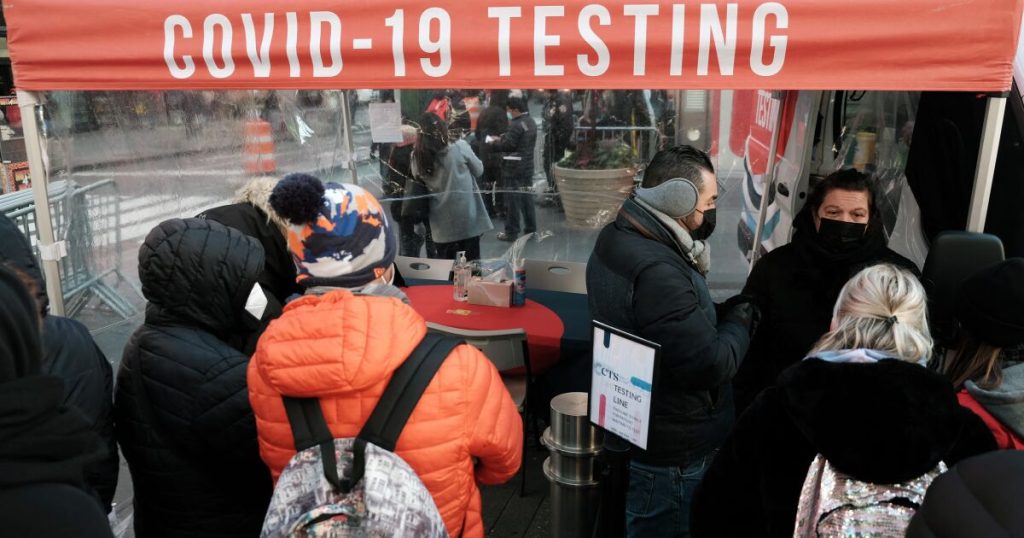The Bishop of Jinotega, Monsignor Carlos Herrera, uses short and direct phrases to describe the helplessness in which Nicaraguan families find themselves at the end of 2021, due to “unemployment, crime and political insecurity”, and he sticks to the message that “the Lord walks with us in the midst of suffering, of poverty, it is a message of bringing that hope that the future will be better.”
Recently elected as president of the Episcopal Conference of the Catholic Church in Nicaragua, the bishop decides not to respond to the virulent attacks that Daniel Ortega has launched against priests and bishops, whom he describes as “terrorists.” Y “Criminals.” “It is part of the ministry, of the prophetism that the Church has to do, and we are not going to answer in the same way,” he says with aplomb. The Church does not seek to protect itself, he explains, “but the good of all, of all the Nicaraguan people, of those who are suffering, and even of the Government, too. That is our message ”.
In an interview with This week Y CONFIDENTIAL Monsignor Herrera spoke of the national crisis and stated that “dialogue is the most favorable way out of a sociopolitical crisis” and in the case of an eventual national dialogue, “the Church would be willing to mediate, if both parties request it.” .
Bishops and priests are in close contact with the population. What are the main concerns that families have in their communities, in the diocese of Jinotega, and in the north of the country, at the end of this year 2021?
The concern is, above all, security, there is a lot of crime, it is known that the family is unprotected, they feel that they are unprotected; also the economic situation, unemployment. Right now they are working to raise the coffee harvest, but it is two months, three months, and everything is over; In some places the winter has not been well, too much rain, crops have been lost, also the economic impact and political insecurity. So those are the fundamental concerns these days.
This year there has been a greater flow of Nicaraguan migration to Mexico, to the United States, even greater than people leaving for Costa Rica. What people say? Why are you emigrating out of the country?
I think there are two factors, the economic factor, unemployment, because many companies have closed, and also because of social insecurity.
And what place does the health situation occupy in people’s concerns? We have seen tens of thousands of people who have traveled to the Honduran border area to get vaccinated. What has been the impact of covid-19 in this year 2021?
There have been like two strong periods, last year, and now in October, strong; but lately it seems that it has been overcome, a little better attention, for example, the attention of the Ministry of Health has gone from house to house; but there is always that insecurity that, which is the best vaccine. People make comparisons and that is why they have left the country to get vaccinated with a vaccine that is approved by the World Health Organization.
There are more than 160 political prisoners in different prisons in the country, including at least seven of the pre-candidates who wanted to compete in the November 7 elections. What opinion does the Episcopal Conference have on the situation of political prisoners, the credibility of the accusations against them and the trials that are being brought against them?
Only the Government knows how far these accusations go, because they are the ones who have (made) them. It is difficult, but I know that some people are recognized and that most of the population does not see exactly what has been done with them; but the Government is the one that has the arguments.
And what would the Church say to the families of political prisoners and people who are demanding, for the fourth consecutive year, a Christmas without political prisoners?
First of all, I believe that we must insist, because we must always insist with the hope that one day the Government will be able to reflect on a path to the liberation of the prisoners, a path to development, to a democracy, to peace, to leave of the uncertainty that both the population has as well as the Government. And our prayers, our closeness, for them.
Various sectors in the country speak of the need for a national dialogue between the Government and the country’s forces after the November 7 vote. How does the Church see it? Are there conditions for a national dialogue?
You know that the stages are marking the need, which perhaps was not thought before. I believe that dialogue is the most favorable way out of a sociopolitical, social crisis. So, that depends, which are of some, or of others, the objectives of that dialogue, it depends on a lot (of) that so that it has value.
Would the Church and the bishops be willing, if invited, to participate in an eventual dialogue, as mediators or as witnesses?
If both parties request it, yes, we are willing to mediate, to collaborate on that.
And what would be the conditions or requirements for an eventual dialogue to be successful and freedom to be restored in the country?
We do not have to set criteria, they are. I suppose that those who are demanding more dialogue should state what is fundamental: freedom of expression, the freedom to be able to request what is needed; criteria of respect, freedom, understanding of both parties, having the ability to want to get out of the situation.
The November 7 elections were held more than a month ago, and on January 10 the government of President Ortega will take office again. What impact has this had on the country? Is there hope for a change, for an improvement, or is there more fear and pessimism in the population?
On the part of the Government, it says that the economy is improving, but at a social level it is seen that emigration is like a negative act that is contradicting migration.
How is the Government’s relationship with the Church today? There are speeches by the highest authorities that when the Church denounces human rights violations or supports sectors that are victims of repression, the Government says that the Church was involved in an attempted coup. Is the Catholic Church being persecuted today?
There were moments of tension. The Church’s message will always have its adversaries understand it, for not accepting it, we do not see that as something strange. Since Jesus Christ, throughout the history of the Church, there have been these contradictions; But we hope that there may be a time to be open to the message, and to understand that what we want is the good for all the people of Nicaragua, not only for one sector, but for the good of all. Perhaps not persecution, but rather, they are phrases, words that have no foundation, that’s how we interpret them.
Monsignor, but there have also been very harsh words, priests and bishops, accused of terrorists, priests of the devil, criminals. That has provoked threats. Are there priests and bishops who fear for their lives, have they had to leave the country?
Yes, I know. I know that they have come out because of that persecution, but, as I said, it is part of the ministry, of the prophetism that the Church has to do, and we are not going to answer in the same way, but rather we seek, not to protect ourselves, not to defend ourselves, rather, what the Church achieves is the good of all, of all the Nicaraguan people, of those of us who are suffering, and even of the Government, as well. That is our message.
Some people ask why Pope Francis does not speak out publicly about the situation in the country, and particularly about this type of attack against the Catholic Church. Is the pope aware of what is happening in the country, and about these actions against the Church?
Sometimes the Pope has said: I am praying, I hope that the Nicaraguan people with discernment will come out of the situation; and I believe that he has also done it through the Nunciature, in a more private way for the purpose of achieving understanding.
But the pope is not going to send out a message that perhaps is not going to contribute to harmony, to peace. So, he says in a general way to all governments, how they should exercise this ministry of governing, but not directly; So, but I do believe that through the Nunciature he has sent messages to the Government, of course he has.
The latest CID Gallup poll, which we publish today in this program, places the Catholic Church, along with independent media, as the most credible institutions in the country. How does the Episcopal Conference see the role of its moral leadership in this moment that Nicaragua is experiencing today, in this national crisis?
I believe that everything possible is done to guide, to advise the people, and on our part as well, the messages that are enlightening, both for the people and also for the authorities, with the aim of moving forward. He who can contribute to improve, always find a way to make the parties in conflict understand that the best thing is to overcome crises through dialogue, through concrete actions to overcome. That is our common thread, a message of hope and an invitation to discernment in order to lead people to reflection.
And is this appeal to hope based on what the Church expects from the international community, from international solidarity, or from the Nicaraguan forces, or from a change in attitude on the part of the Government?
I believe that we all have to contribute, the Government, the opposition, and there are also us, as a people, we are not a single people, but we are a people that have communication with other governments, and we also need the support, the discernment also of all the villages.
What reflections does the Episcopal Conference of the Catholic Church have for the people of Nicaragua on Christmas Eve at this time? Are you going to issue a new pastoral letter on Christmas and next year?
As a (Episcopal) Conference, no, we are already very close. But each bishop will give his message of hope, and live this Christmas season from the spirituality of the birth of Jesus in Bethlehem, poor, but with that love for God, that love for neighbor, in that freedom of the children of God, that is, , living our own reality, assuming it, but with faith, hope, and that the Lord walks with us in the midst of suffering, of poverty, a message of carrying that hope that the future will be better.















